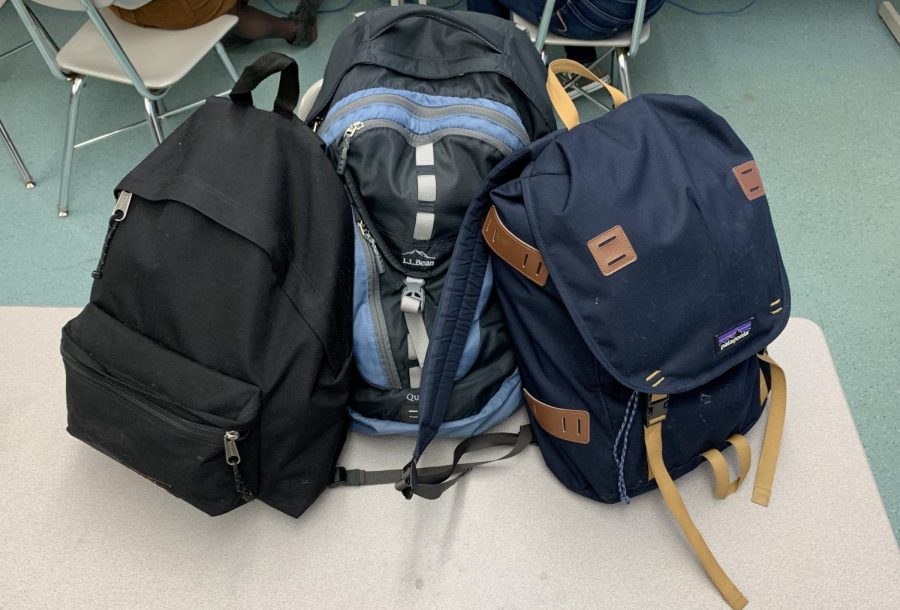Lighten the Load: Making Backpack Weight Healthy
The average CRLS backpack weight is 16 pounds, according to a survey of 45 students.
November 30, 2018
CRLS students carry a heavy load every day to school, with their backpacks often holding binders, textbooks, agendas, and Chromebooks. Studies have found that heavy backpacks cause back pain and poor posture in the short term and can transform the spine in the long term. The weight and pressure on the back and shoulders are detrimental to the health of the spine and can pose future health threats.
In a survey of 45 CRLS students, students were asked to estimate the weight of their backpacks. The answers ranged from two pounds to 50 pounds with an average estimate of 16 pounds. Out of the students surveyed, 35% found that the weight of their backpacks was sometimes a problem and 27% felt that their backpacks were too heavy. Additionally, 32.5% said that their backs and shoulders hurt sometimes after wearing their backpacks for the whole school day. 30.2% said their backs and shoulders hurt every day and 16.2% said their backs and shoulders often. Junior Stephanie Grassi, while taking the survey, jokingly remarked, “I’m surprised I don’t have scoliosis.”
KidsHealth.org recommends that children carry no more than 10% to 20% of their body weight in their backpacks. The American Physical Therapy Association also recommends that no one, of any weight, should carry a backpack that weighs more than 25 pounds.
The CRLS survey showed that students carry, on average, one binder and two notebooks with them daily. Textbooks also add a considerable amount of weight to backpacks. This year, all CRLS students are also required to carry the school-administered Chromebooks. Each school-assigned Chromebook weighs roughly three pounds (four pounds with the protective case that came with it). Many students have chosen to remove the case in order to decrease the weight of their bags.
In the survey, several students expressed the concern that the Chromebooks were a large part of the weight problem. CRLS junior Jahmaya Adamson said, “My back is beginning to hurt me because of the Chromebook weighing it down.” Junior Eli Levitt brought up another important point, saying that “the Chromebook policy definitely added more weight to my bag, because not only does this Chromebook and case weigh more than [my personal laptop], but sometimes I have to bring two laptops if I need to do work that Chromebooks block.”
School nurse Ineida Barros recommends using backpacks with chest straps, which helps support the torso. These chest straps also aid in distributing the weight of the backpack over your whole torso so that the shoulders aren’t carrying all the weight. Ms. Barros also stressed the importance of carrying your backpack on both shoulders: “How could you have [your backpack] on your back like that?”
When asked about possible solutions, many students mentioned removing the case, making lockers free, leaving binders and notebooks in class, and reducing the amount of paper used in classrooms as a way to lighten the load. Introducing Chromebooks was seen as the first step towards digitalization, however, many students feel that even more schoolwork should be done on the computers to reduce the amount of paper students have to carry with them daily.










